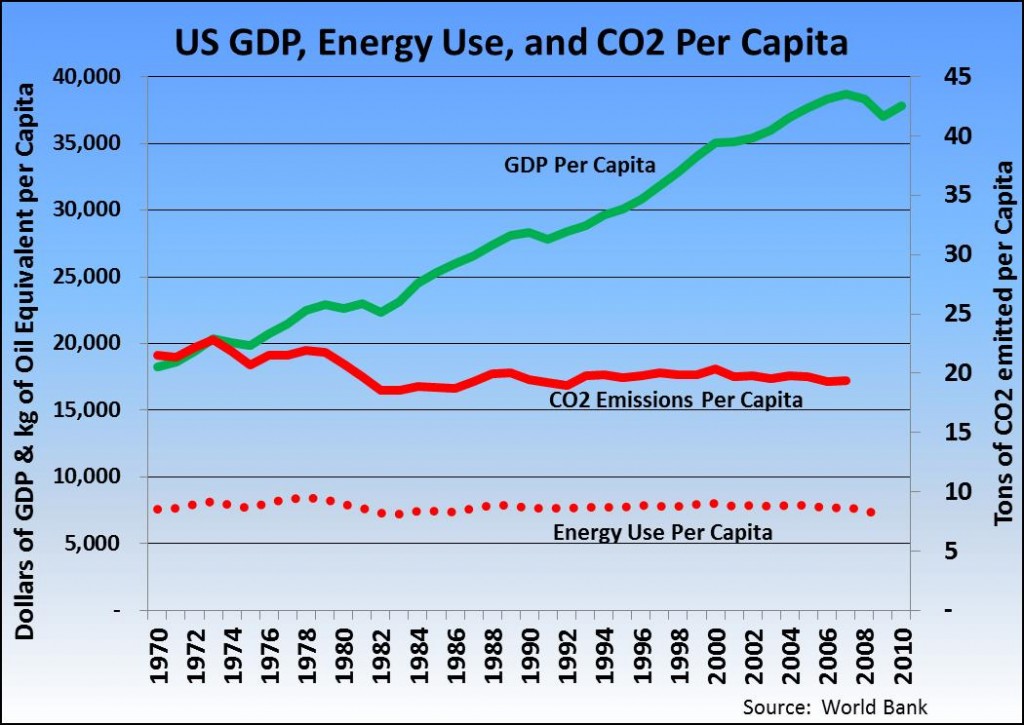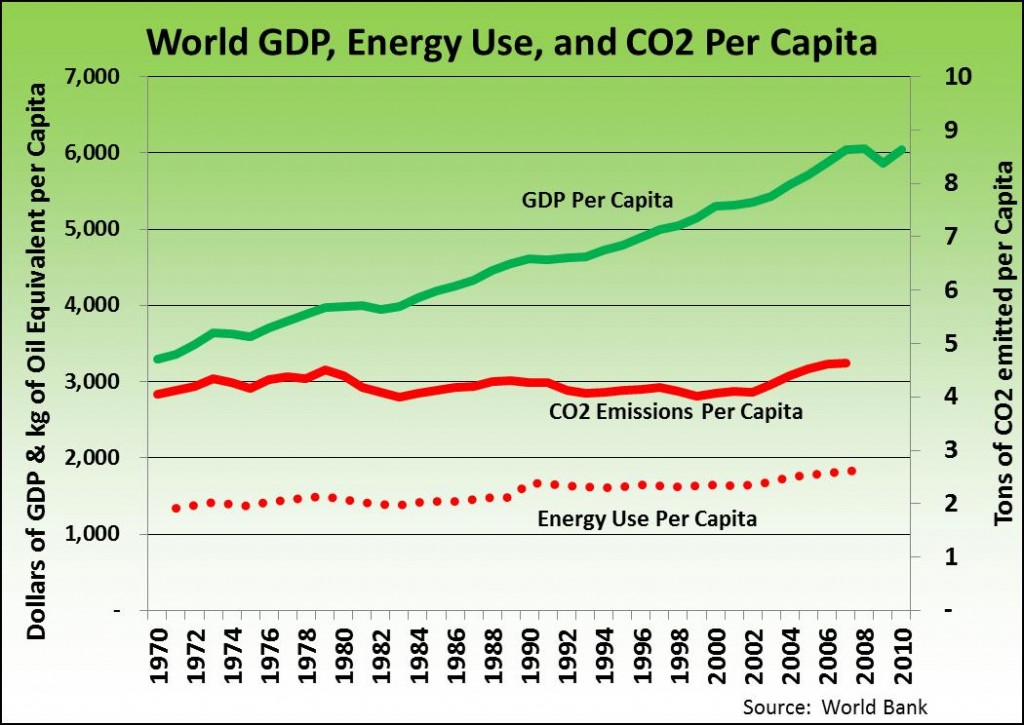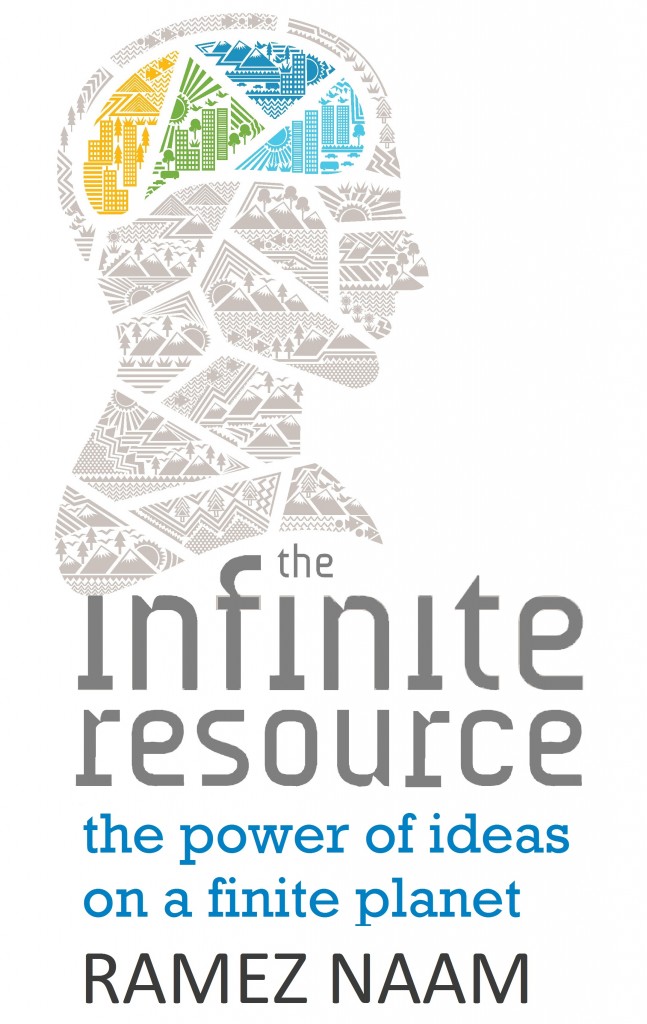Decoupling Growth From Energy and Carbon
Is it possible to grow an economy without increasing pollution? Without increasing resource use? As I've posted, Americans already use less oil and less water than in previous decades.
Here's a more macro-scale view – US per-capita GDP over the last 40 years (up to 2010) in green, compared to US per capita CO2 emissions and US per capita energy use, in red.
Essentially, we've doubled the size of the US economy (per person) since 1970, while reducing per capita CO2 emissions and keeping energy use flat. Even after adjusting for outsourced energy use (manufacturing in China, for example), these numbers stay essentially the same, with per-capita CO2 emissions never returning to their 1970 high.
What about on a global basis? Here there is still an increase occuring in per-capita energy use and per-capita CO2 emissions. But the increase in per-capita GDP is much larger.
Now, let me be clear here: This decoupling is not sufficient. To address climate change we need to see CO2 emissions drop quite substantially.
But bear in mind – this is what we've achieved with almost no cogent policy effort whatsoever. With a focused effort on reducing CO2, there's every reason to believe that we would see carbon emissions drop as have lead emissions, mercury emissions, sulfur dioxide emissions, CFC emissions, and those of a host of other pollutants.
Carbon will be the biggest pollutant challenge we've ever faced. At the same time, the indicators are that it's possible to grow an economy without using more of a resource or emitting more of a pollutant, and, when conscious effort is applied, that it's possible to grow an economy while reducing emissions of a pollutant dramatically.



